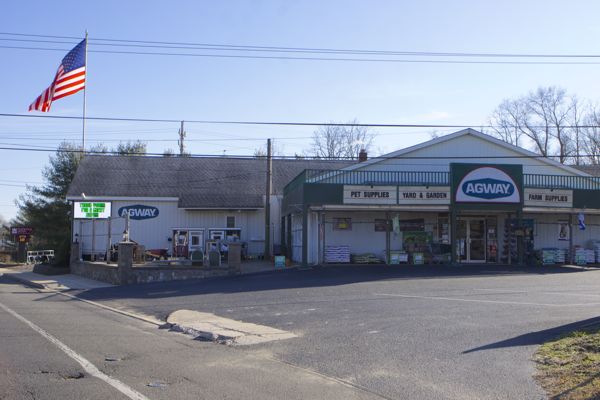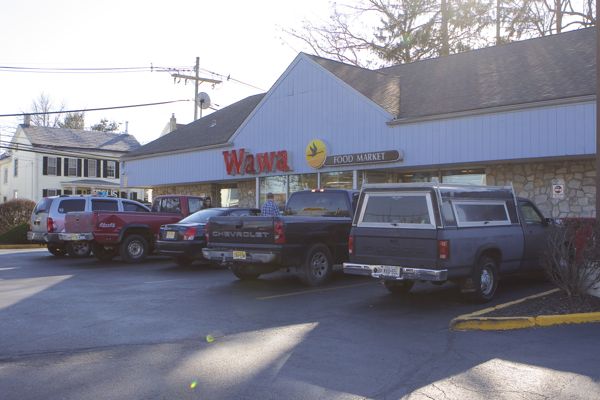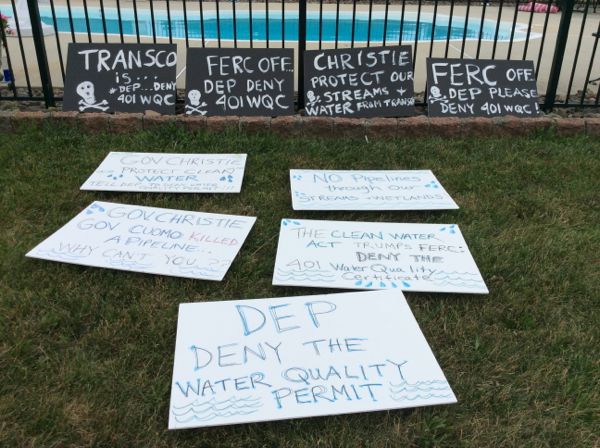Desperate Town Officials commit a form of slow suicide by sewers and sprawl
WTF is the Honey Dipping Option?
Welcome to the Plumsted Plantation
A whole town is paying and being ruined by the “solution” to a literal cesspool
Age restricted, private gated community invades the rural landscape

Agway, New Egypt, NJ – symbol and center of an agricultural town
“We’re putting the cart before the horse. We can’t afford this. How much it it (sewage plant) going to cost us? How are we going to pay for it? You can fire me if you like but you’re not getting my vote” ~~~ Robert Hardy, Board member (7/5/16)
Is there an adult in the room – or some government agency that still looks out for the public interest – that can protect these people from this looming land use and financial disaster? From the misguided “leadership” of an entrenched political machine?
To save what’s left of the rural character of this place?
To shield low and moderate income people from the pure greed of real estate financial speculators and builders?
To protect the environmentally sensitive Crosswicks Creek and its largely undisturbed historic riparian greenway? The Christie DEP already abandoned that responsibility.
It was a bizarre and sad night in Plumsted, as the Land Use Board approved, by a 7-3 vote, the General Development Plan (GDP) for “Greenbriar at Crosswicks”, a 454 unit massive sprawl development on a farm adjacent to Crosswicks Creek.
The plan involves construction of a new 600,000 gallon per day sewage treatment plant that would discharge to the Creek.
Say goodbye to horse farms, agriculture, no traffic, and low taxes.
According to the applicant’s Fiscal Report, the project at full build out would generate 78,230 GPD of wastewater – leaving about 522,0000 GPD for the rest of the “Downtown Development Area” and new growth.
That’s way too much capacity – either homeowners and businesses will pay monstrous sewer bills or be forced to approve rampant growth and development to pay for it – literally a lose – lose proposition.
That same Fiscal Report also admits that there is not enough water to serve the development (but the problem is far worse that the developer admits, as we wrote).
While the developer’s Fiscal Report fails to even mention the most basic economic facts, according to the Redevelopment Agreement with the Township, the developer will pay $19,500 per approved housing unit – for a maximum of about $9 million.
How much does the new sewer plant cost? How much will that $9 million cover? Who pays the balance?
The Redeveloper’s agreement allocates virtually all of the economic risks to the community – it’s a lose lose proposition for them.
If the housing market booms, they will get over-run by development quicker and have to pay more and sooner to build and operate the new sewer system.
If the housing market slows or tanks, the taxpayers get stuck paying the debt service and operating costs of an unused new sewage treatment plant.
Remarkably, the Revelopment Agreement lets the developer Lennar walk if they don’t make expected profits and leave the local taxpayers holding the bag.
An “Uncontrolled circumstance” is defined to include this insanity – guaranteeing the developer’s profits:
Market conditions … the effect of which, as reasonably determined by the Redeveloper, would materially or adversely affect the Redevelopeer’s ability to market and sell units at such prices and in such quantities as would enable the Redeveloper to achieve the unit sales, cash flow, and/or return on equity assumptions set forth in the Redeveloper’s business plan as included in its application for the Financial Agreement.
The developer gets to walk if the economy or the profits are not there – But if Plumsted township is delayed or unable to build the sewage treatment plant (on time according to the developer’s schedule, or at all), then the developer gets to invoke – get this – the “Honey Dipping Option”.
WTF is the “Honey Dipping Option”? Sounds like some perverse nightmare out of Kubrik or Kafka or Heller:
In the event of unforeseen delay in construction of the Sewer Improvements once the Redeveloper commences construction of the project … the Redeveloper shall continue construction of the project through the interim use of a honey dipping process (the “Honey Dipping Option”). Under the Honey Dipping Option, the Redeveloper shall construct temporary on-site storage facilities for the collection of sewage generated by the project, the Township shall cause the PMUA to periodically remove such sewage and cause same to be treated and disposed at an off-site location, and the costs of use of the Honey Dipping Option … shall be paid for by the PMUA through the standard annual user fees, to be paid by the individual homeowners.
Does anyone know how much this insanely reckless option might cost?!
Local officials have not told the residents that if their homes are located in the sewer service area, they are legally REQUIRED to hook up and pay sewer connection fees and user charges. They have said nothing about how much this would cost a homeowner, many of whom are on fixed and/or low income, now living with a free septic system.
How will these folks pay a $5,000 connection fee and $100/month sewer bill?
Local officials have also not told the community that, because the TOWN will issue bonds, that taxpayers could wind up on the hook if the plant is built and the developer and sewer users do not provide sufficient revenue to pay the debt service and operating costs of the plant.
Local officials have told the community that the developer is picking up the tab, so the community has been misled, to put it mildly. They think they are getting something for nothing.
That’s the same dishonesty and irresponsible attitude that created the problem by letting illegal 19th century cesspools violate public health and sanitation laws, instead of requiring the owner to pay to cleanup their mess.
Now the whole town is paying and being ruined by the “solution” to this literal cesspool.
Last night no one would answer my repeated questions posed to the developer about how much the sewer plant and collection system would cost to build and operate; what share of these costs were borne by the developer; and how much a typical homeowner or local business would pay in connection fees, user costs and tax increases.
No one would answer questions about basic facts.
Board member Robert Hardy was the only one with the common sense and courage to speak out in opposition to the scheme.
His remark about “you can fire me if you like” illustrates the ugly side of intimidation in a small Ocean County Republican machine town. The Plumsted Plantation.
The town’s attorney, who consistently offered questionable legal advice, is Assemblyman McGuckin (R-10).
The former Mayor and Business administrator and Board member is fellow Assemblyman and Master Puppeteer, Dancer (R-12), who put this scheme together.
The town’s engineer is a retired fellow working on contract whose name escapes me – he raised few questions, consistently argued the developer’s case, and his ideas were so backward that he could have been exhumed from a local cemetery.
The town has no local newspaper and no news coverage.
As residents complained last night, the “anchor” attractions in the “historic” “downtown district” are CVS and Subway.

CVS – this is not a quaint, historic small rural town design feature

No way the subway works with Agway – but doesn’t that faux gaslight make you feel all warm and fuzzy?
Putting the finishing touches on the destruction of the Town, of course we have WaWa:

The Town’s health officer – if they have one – failed to enforce basic sanitary laws for decades, and as a result, there are several illegal 19the Century cesspools and septic tanks discharging raw sewage to the streets and Crosswicks Creek.
It really is a perfect story of pitiful political and economic conditions.
Now, it will get worse, as an age restricted, private gated community invades their rural landscape.
One man spoke and expressed it perfectly:
I thought Colliers Mills WMA formed a boundary for the invasion of retirement housing disease.”
Who will save these folks from themselves and greedy developers and speculators?





